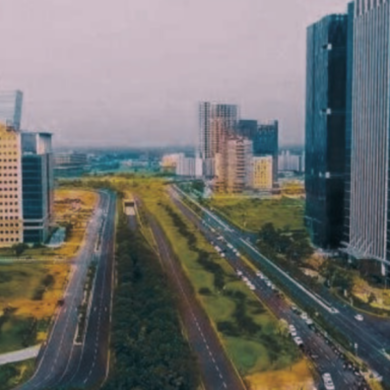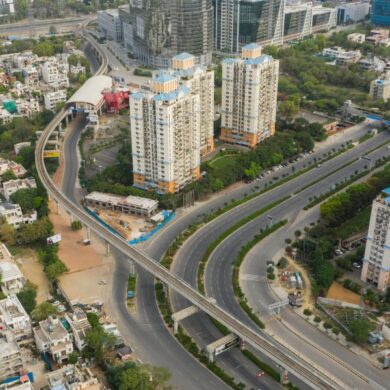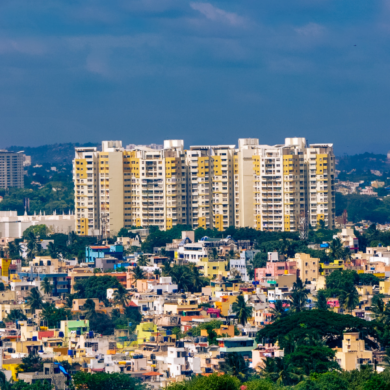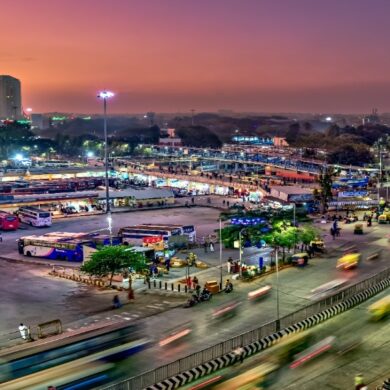
Certain things to check before buying a plot in Chennai is crucial. Key considerations include legal checks, zoning regulations, location, infrastructure, and environmental factors – to ensure a secure investment.
Buying a plot in Chennai is a significant investment, and thorough due diligence is essential to avoid legal and financial issues. With the city’s rapid real estate growth, land acquisition has become increasingly popular, evidenced by 209 acres of land purchased across 8 deals valued at ₹1220 crore. This surge underscores the importance of careful evaluation.
When purchasing land in Chennai, consider the city’s unique factors – such as legal complexities, infrastructure developments, and local regulations. This blog will help you navigate the key aspects to check, ensuring a well-informed and secure investment decision.
-
Table of Contents
Understanding Zoning Regulations
If you are planning to buy a plot in Chennai, it is important to understand the city’s zoning regulations. These dictate how the land can be used – whether for residential, commercial, industrial, or agricultural purposes. The Chennai Metropolitan Development Authority (CMDA) oversees these regulations.
Each zone has specific guidelines on permissible construction and activities. To avoid legal issues, verify zoning information with the CMDA, that provides detailed maps and guidelines. For example, a buyer might purchase a plot intending to build a home, only to find it is zoned for commercial use. This could result in fines, litigation, or even demolition. Verifying zoning regulations upfront prevents such legal issues.
-
Legal Due Diligence Before Buying a Plot in Chennai
When you buy a plot in Chennai, conducting thorough legal due diligence is essential to safeguard your investment and avoid future complications. Here are the key legal aspects you need to check:
Title Verification:
Ensuring a clear and marketable title is crucial. Verify that the seller has legitimate ownership and the right to sell, by checking the title deed and ensuring no legal claims or disputes. Consult a legal expert to review the ownership history.
Encumbrance Certificate:
EC confirms that a property is free from financial liabilities like loans. It is crucial when buying a plot in Chennai, and can be obtained from the local sub-registrar’s office.
Land Use Classification:
Before purchasing, verify that the land is zoned for your intended use – residential, commercial, or agricultural. Chennai’s zoning laws are strict, and mismatches can lead to legal issues. Check with the CMDA for accurate land use classification.
NOC Requirements:
No Objection Certificates (NOCs) from various authorities are often required, to ensure that the plot complies with regulatory norms. These could include NOCs from the environmental board, fire department, and other municipal bodies. Obtaining these certificates is essential to prevent future legal complications.
Check for Patta and Chitta:
In Tamil Nadu, Patta and Chitta are key land records proving ownership and land classification. When buying a plot in Chennai, ensure these documents are verified and updated. You can check them online via the Tamil Nadu government portal or at the local revenue office.
-
Location and Connectivity
When you buy a plot in Chennai, the location and connectivity of the property are critical factors that directly impact both its value and your quality of life. Here are key considerations:
Proximity to Essential Amenities
Ensure the plot is located near social infrastructure such as schools, colleges, hospitals, markets, malls, and multiplexes. Proximity to good schools and healthcare facilities not only enhances daily convenience, but also increases the property’s attractiveness to future buyers.
Connectivity to Major Roads, Public Transport, and the City Centre
Connectivity plays a crucial role in determining the value of your plot. Check the accessibility to major roads, highways, and public transport options like metro, buses, and trains. Plots near Pudupakkam, GST Road, OMR, and ECR offer excellent connectivity to key parts of the city – including the city centre and business districts.
Future Infrastructure Developments
Investigate upcoming infrastructure developments in the area. Projects like metro expansions, new highways, and flyovers can significantly boost the value of your plot over time. Keeping an eye on future developments can help you take a well-informed decision, when you buy a plot in Chennai.
-
Soil Quality and Topography
When you buy a plot in Chennai, assessing the soil quality and topography is crucial for ensuring the plot’s suitability for construction. The type of soil and the landscape can significantly impact both the feasibility of building on the land and the long-term stability of any structure you plan to construct.
To arrange a soil test, contact local geotechnical engineers or soil testing labs, often listed with the CMDA or found through referrals. Hiring a reliable expert ensures your plot is suitable for safe construction.
Importance of Checking Soil Quality for Construction Feasibility
Soil quality directly affects the foundation strength and the overall construction process. Before you buy a plot in Chennai, it is essential to conduct a soil test to determine its load-bearing capacity. Poor soil quality can lead to structural issues, increased construction costs, or even the need for specialised foundation techniques.
Common Soil Types in Chennai
Sandy Soil: Found in coastal areas, drains well, but may require deep foundations for stability
Clayey Soil: Retains water and can expand, posing risks to foundation integrity
Loamy Soil: Ideal for construction, due to good drainage and stabilityConstruction Techniques by Soil Type
Sandy Soil: Use deep foundations, soil stabilisation, and geotextiles for reinforcement
Clayey Soil: Opt for pier or pile foundations, underpinning, and proper drainage
Loamy Soil: Shallow foundations are suitable, but ensure proper drainage -
Understanding the Topography and Its Influence on Drainage and Waterlogging Issues
The topography of the land influences drainage and waterlogging risks, which are critical considerations, especially during Chennai’s rainy season. A flat or slightly elevated plot is generally preferable, as it promotes better drainage and reduces the likelihood of water accumulation.
Water Availability and Groundwater Status
When buying a plot in Chennai, assess water availability and flood risks. Check local water sources, borewell functionality, and reliability of municipal supply. Ensure proper drainage and verify flood risks in low-lying areas. Evaluate soil quality and topography to ensure feasible construction and a sustainable investment.
Flood Zone Considerations
When buying a plot in Chennai, assess flood risks by reviewing flood maps and historical data. Ensure the plot is not in a flood-prone or low-lying area, and check for proper drainage. Flood-prone areas may require extra infrastructure. These precautions will help you avoid future complications and property damage.
-
Developer Credibility and Past Projects
The developer’s reputation is crucial when buying a plot in Chennai. A reliable developer ensures smoother transactions and better development quality. Research their past projects and gather customer feedback to assess credibility, timely delivery, construction quality, and adherence to promises.
Also, check for any pending legal cases or unresolved issues, as these can indicate potential problems. Ensuring the developer has a solid reputation and clean legal history reduces the risk of delays or disputes, giving you confidence in your investment.
Red Flags to watch for
- Frequent / Unexpected Delays
- Negative Customer Feedback
- Legal Issues
- Financial Stability
- Poor Communication
-
Financial Aspects
When buying a plot in Chennai, research market rates to ensure a fair price and compare similar plots. Account for hidden costs like registration fees and stamp duty, which can increase expenses. Consider financing options carefully, as land loans differ from home loans. Ensure your finances are in order. Lastly, have the plot surveyed and valued by an expert to confirm boundaries and make a sound investment.
-
Environmental and Ecological Considerations
When buying a plot in Chennai, assess environmental factors like proximity to industries or sewage plants, which can impact air & water quality, and could lower property values. Check for ecological concerns, such as wetlands or forests, that may impose construction restrictions or pose risks like flooding or erosion. Ensuring the plot is in a stable and environmentally safe area protects your investment and promotes sustainable living, helping you take a well-informed decision.
-
Neighbourhood and Community Analysis
When you buy a plot in Chennai, evaluate the neighbourhood’s safety and demographic makeup. Check crime rates and gather insights from local residents. Consider future development plans that could impact the area, potentially raising property values or changing the community’s character. Lastly, assess the quality of life by ensuring essential facilities like schools, colleges, hospitals, transport hubs, shops, malls, and multiplexes are nearby. A well-developed community is crucial for a comfortable living experience, when you buy a plot in Chennai.
-
Resale Value and Future Growth Potential
Analysing market trends and future developments in the vicinity is crucial. Areas poised for infrastructure upgrades or commercial expansion are likely to see higher appreciation rates. Factors such as infrastructure development, proximity to commercial hubs, and upcoming projects can significantly influence the plot’s future appreciation. According to Assetmonk’s Chennai Real Estate Outlook 2024, prices in Chennai are expected to rise by 5.5-6.5%, making it a promising time for investment.
-
Documentation and Registration Process
When you buy a plot in Chennai, the registration process is a key step. Below are the steps involved in paying stamp duty and registration charges online through the Stock Holding Corporation of India Limited (SHCIL):
(a)Visit the SHCIL official website
(b)Choose ‘Tamil Nadu’ from the drop-down menu
(c)Fill up the application form with the required information
(d)Download and print the completed form
(e)Take the form to a nearby SHCIL branch (list available on the SHCIL website itself)
(f)Pay using various methods such as RTGS, cheque, NEFT, cash, or account-to-account transfer -
Checklist For Buying a Plot in Chennai
| 1 | Understanding Zoning Regulations |
| ☐ | Verify zoning information with CMDA for residential, commercial, or industrial use |
| ☐ | Review permissible construction and activities for the zone |
| 2 | Legal Due Diligence |
| ☐ | Title Verification: Confirm the seller’s ownership and the plot’s clear title |
| ☐ | Encumbrance Certificate: Ensure the plot is free from financial liabilities such as loans |
| ☐ | Land Use Classification: Verify land use classification with CMDA |
| ☐ | NOC Requirements: Obtain necessary No Objection Certificates (environmental, fire, etc.) |
| ☐ | Patta and Chitta: Ensure these documents are updated and verified |
| 3 | Location and Connectivity |
| ☐ | Proximity to Amenities: Check for nearby schools, colleges, hospitals, markets, malls |
| ☐ | Connectivity: Assess access to major roads, highways, and public transport |
| ☐ | Future Infrastructure: Investigate upcoming projects (metro, highways) that may enhance value |
| 4 | Soil Quality and Topography |
| ☐ | Conduct a soil test to assess construction feasibility |
| ☐ | Evaluate the topography for drainage and waterlogging risks |
| 5 | Water Availability and Groundwater Status |
| ☐ | Check for borewell functionality or municipal water connections |
| ☐ | Understand groundwater levels and legal restrictions on extraction |
| 6 | Flood Zone Considerations |
| ☐ | Review flood maps and historical data for flood-prone areas |
| ☐ | Ensure the plot has adequate elevation or drainage solutions |
| 7 | Developer Credibility and Past Projects |
| ☐ | Research the developer’s past projects and customer feedback |
| ☐ | Verify any pending legal cases or unresolved issues with the developer |
| 8 | Financial Aspects |
| ☐ | Market Rates: Compare prices of similar plots |
| ☐ | Hidden Costs: Account for registration fees, stamp duty, and legal fees |
| ☐ | Financing Options: Explore land loans and confirm eligibility |
| ☐ | Survey and Valuation: Get the plot surveyed and valued by an expert |
| 9 | Government Approvals and Clearances |
| ☐ | Ensure land title verification, encumbrance certificates, and release certificates are in order |
| ☐ | Check for CMDA approval and sanction letters for utilities |
| 10 | Environmental and Ecological Considerations |
| ☐ | Assess the impact of nearby industries or sewage treatment plants |
| ☐ | Check for ecological concerns like proximity to wetlands or forests |
| 11 | Neighbourhood and Community Analysis |
| ☐ | Evaluate the neighbourhood’s safety and demographics |
| ☐ | Consider future development plans and their impact |
| ☐ | Check the availability of essential facilities such as schools and hospitals |
| 12 | Resale Value and Future Growth Potential |
| ☐ | Analyse market trends and future developments in the area |
| ☐ | Consider infrastructure development and location for future appreciation |
| 13 | Documentation and Registration Process |
| ☐ | Follow the steps for paying stamp duty and registration charges online via SHCIL |
| ☐ | Ensure a lawyer oversees the process and verifies all necessary documents |
Conclusion
When you buy a plot in Chennai, thorough due diligence is essential. Key checks include zoning regulations, legal documentation, and government approvals. Evaluate location, soil quality, and water availability, while considering environmental and community factors.
Assess the developer’s credibility, financial aspects, and future growth potential to protect your investment. Engage a legal expert and consult professionals to ensure every detail is handled correctly. By conducting comprehensive research and securing proper guidance, you can make a well-informed and secure investment in Chennai’s growing real estate market.
FAQs
1. What are the essential legal documents to verify ownership and clear title?
The essential legal documents to verify ownership and clear title are title deed, encumbrance certificate, and Patta / Chitta.
2. How can I assess the plot's location in terms of future development and infrastructure?
You can assess the plot's location in terms of future development and infrastructure, by researching upcoming infrastructure projects such as metro expansions and road developments and by analysing the area's growth potential.
3. What are the common red flags to watch out for during a plot inspection?
Common red flags to watch out for during a plot inspection are unclear boundaries, poor soil quality, inadequate drainage, and nearby environmental hazards like flood-prone areas or industrial zones.
4. How do I ensure the plot has proper water, electricity, and drainage facilities?
You can ensure the plot has proper water, electricity, and drainage facilities by checking for existing connections & sanctioned utility letters, and speaking with local authorities or residents.
5. What is the process for checking for potential land disputes or litigation?
The process of checking for potential land disputes or litigation is reviewing the land's legal history, obtaining encumbrance certificate, and consulting a lawyer for a detailed title search.
6. How can I estimate the potential return on investment for a plot in Chennai?
You can estimate the potential return on investment for a plot in Chennai by analysing market trends, comparing similar properties, and considering future development plans in the area.
7. What are the tax implications and other financial costs associated with plot ownership?
Tax implications and other financial costs associated with plot ownership are property tax, stamp duty, capital gains tax, registration fees, and maintenance.
8. Is it advisable to hire a real estate consultant or lawyer for the purchase process?
Yes, it is advisable to hire a real estate consultant or lawyer for the purchase process, to ensure proper legal checks, documentation, and negotiation support.
9. How can I determine the appropriate budget for buying and developing a plot?
You can determine the appropriate budget for buying and developing a plot by assessing market rates, factoring in hidden costs, and considering construction expenses.
10. What are the current market trends and future prospects for plot prices in Chennai?
You can stay informed about current market trends and future prospects for plot prices in Chennai by following real estate reports and by consulting experts familiar with the city's growth trajectory.









